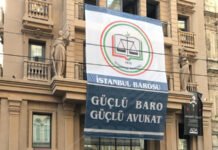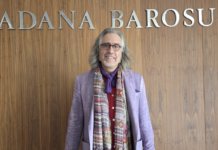Prisoners in Turkey’s northwest Marmara region endured alleged mistreatment, severe overcrowding and medical neglect in 2024, according to a new report published by the Human Rights Association’s (İHD) İstanbul branch on Wednesday.
The Marmara Region Prisons 2024 Rights Violations Report detailed thousands of violations reported by inmates and their families.
Allegations of mistreatment were widespread. The report documented 1,099 cases of ill-treatment in Marmara prisons, including beatings, psychological harassment and degrading practices such as forced strip-searches. Some inmates were allegedly placed in solitary confinement arbitrarily, beyond legal justification, as a form of punishment. Others reported being threatened or denied legal representation when attempting to file complaints about their treatment.
The report highlighted severe overcrowding in Marmara prisons. The excessive population has led to extreme conditions, with inmates crammed into small spaces, sometimes forced to sleep on the floor due to a lack of beds. The Turkish government has allocated funding to construct 11 additional prisons in 2025, a move that the rights group argues fails to address the root causes of mass incarceration.
Medical neglect was one of the most frequently cited abuses in the report, with 769 complaints from Marmara prisons. Prisoners described long delays in receiving treatment, the refusal of transfers to a hospital and the denial of essential medication. Some inmates, including those suffering from chronic illnesses, were allegedly left untreated for extended periods, while others reported being examined or even undergoing surgery while handcuffed. The report also detailed incidents of food poisoning, with 251 inmates falling ill after consuming spoiled food, raising concerns about hygiene and nutrition in prison facilities.
Children accompanying their mothers in prison also faced difficult conditions. These children, aged 0 to 6, though not convicted of any crime, live in the same conditions as inmates, with inadequate access to proper nutrition, healthcare and hygiene products.
Restrictions on communication with the outside world were also a recurring issue. The report documented 1,105 violations related to censorship and isolation, including bans on letters, books and newspapers, particularly those in Kurdish. Some prisoners reported being denied family visits as a form of punishment, while others faced long delays in their legal proceedings, with parole applications rejected without clear justification.
The report concluded that the worsening conditions in Marmara prisons reflect broader systemic issues within Turkey’s criminal justice system, where rising incarceration rates, overcrowding and unchecked abuses have led to serious human rights concerns.















